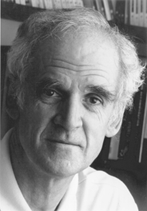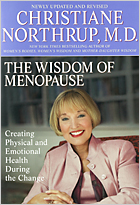Professor Charles Taylor, a Canadian philosopher who for nearly half a century has argued that problems such as violence and bigotry can only be solved by considering both their secular and spiritual dimensions, has won the 2007 Templeton Prize.

Taylor, 75, argues that wholly depending on secularized viewpoints, without taking into account the spiritual, only leads to fragmented, faulty results. He describes such an approach as crippling, preventing crucial insights that might help a global community increasingly exposed to clashes of culture, morality, nationalities, and religions…
Need a dissertation consultant? Creative Adventures Consulting Never Shortchanges the Student
The Templeton Prize, valued at 800,000 pounds sterling, more than $1.5 million, was announced yesterday at a news conference at the Church Center for the United Nations in New York by the John Templeton Foundation, which has awarded the prize since 1973. The Templeton Prize is the world’s largest annual monetary award given to an individual.
Key to Taylor’s investigations of the secular and the spiritual is a determination to show that one without the other only leads to peril, a point he outlined in his news conference remarks. “The divorce of natural science and religion has been damaging to both,” he said, “but it is equally true that the culture of the humanities and social sciences has often been surprisingly blind and deaf to the spiritual.”
“We urgently need new insight into the human propensity for violence,” including, he added, “a full account of the human striving for meaning and spiritual direction, of which  the appeals to violence are a perversion. But we don’t even begin to see where we have to look as long as we accept the complacent myth that people like us – enlightened secularists or believers – are not part of the problem. We will pay a high price if we allow this kind of muddled thinking to prevail.”
the appeals to violence are a perversion. But we don’t even begin to see where we have to look as long as we accept the complacent myth that people like us – enlightened secularists or believers – are not part of the problem. We will pay a high price if we allow this kind of muddled thinking to prevail.”
Taylor has long objected to what many social scientists take for granted, namely that the rational movement that began in the Enlightenment renders such notions as morality and spirituality as simply quaint anachronisms in the age of reason. That narrow, reductive sociological approach, he says, wrongly denies the full account of how and why humans strive for meaning which, in turn, makes it impossible to solve the world’s most intractable problems ranging from mob violence to racism to war.
“The deafness of many philosophers, social scientists and historians to the spiritual dimensions can be remarkable,” Taylor said in remarks prepared for the news conference. “This is the more damaging in that it affects the culture of the media and of educated public opinion in general.”
Conversely, Taylor has also chastised those who use moral certitude or religious beliefs in the name of battling injustice because they believe “our cause is good, so we can inflict righteous violence,” as he once wrote. “Because we see ourselves as imperfect, below what God wants, we sacrifice the bad in us, or sacrifice the things we treasure. Or we see destruction as divine…identify with it, and so renounce what is destroyed, purifying while bringing meaning to the destruction.”
Taylor, an author of more than a dozen books and scores of published essays and who has lectured extensively, is currently professor of law and philosophy at Northwestern University in Evanston, Illinois, and professor emeritus in the philosophy department at McGill University in Montréal , the city of his birth. A Rhodes Scholar, he holds a bachelor of arts from McGill and Balliol College at Oxford University, as well as a masters and Ph.D. (D.Phil.) from Oxford. He is the first Canadian to win the Templeton Prize.
“Throughout his career, Charles Taylor has staked an often lonely position that insists on the inclusion of spiritual dimensions in discussions of public policy, history, linguistics, literature, and every other facet of humanities and the social sciences,” says John M. Templeton, Jr., M.D., the Foundation’s President. “Through careful analysis, impeccable scholarship, and powerful, passionate language, he has given us bold new insights that provide a fresh understanding of the many problems of the world and, potentially, how we might together resolve them.”
The Prize is a cornerstone of the Foundation’s international efforts to serve as a philanthropic catalyst for discovery in areas engaging life’s biggest questions, ranging from explorations into the laws of nature and the universe to questions on love, gratitude, forgiveness, and creativity. Created by global investor and philanthropist Sir John Templeton, the monetary value of the Prize is set always to exceed the Nobel Prizes to underscore Templeton’s belief that benefits from advances in spiritual discoveries can be quantifiably more vast than those from other worthy human endeavors.
The 2007 Templeton Prize for Progress Toward Research or Discoveries About Spiritual Realities will be officially awarded to Taylor by HRH Prince Philip, the Duke of Edinburgh, at a private ceremony at Buckingham Palace on Wednesday, May 2nd.
In his nomination of Taylor for the Prize, the Rev. David A. Martin, Ph.D., emeritus professor of sociology at the London School of Economics, and author of A General Theory of Secularization, a seminal work in the field, said, “His oeuvre is massive and covers issues quite central to contemporary concerns, above all perhaps the nature of self-hood and the religious and secular options open to us in what is sometimes described as secular or even secularist society. He has traced the historical evolution of the religious and secular dimensions of the world as they relate to each other with unequalled authority.”
Taylor was born in 1931 in Montréal in French-speaking Quebec, the only Canadian province where English is not the majority language. Growing up in a Catholic home where both French (his mother’s native tongue) and English (his father’s) were spoken, in a province where language is a political touchstone, spurred an early interest in matters of identity, society and the potential value of thought that runs against the common grain. Though his first degree was in history, a Rhodes Scholarship in 1952 led him to study philosophy at Oxford, where he encountered what Taylor describes as “an unstructured hostility” to, among other things, religious belief. In reaction, he began to question the so-called “objective” approaches of psychology, social science, linguistics, history, and other human sciences.
This led Taylor to his doctoral dissertation, which offered a devastating critique of psychological behaviorism, which holds that all human activity can be explained as mere movement, without considering thought or subjective meaning. Published in 1964 as The Explanation of Behaviour, it put the philosophical world on notice that a new voice had arrived.
From there he went on to write at length on Hegel, the philosopher who pioneered deep contemplation on notions of modernity – territory that Taylor was now intent on exploring anew – including Hegel, published in 1975, and Hegel and Modern Society, 1979.
In 1992, for example, Taylor wrote an article published in the book, Multiculturalism and “The Politics of Recognition” that detailed the effect of modernity on concepts of identity and self which, in turn, has had a profound political impact. He continued that investigation with his noted Marianist Lecture in 1997 in Dayton, Ohio, where he declared that the Catholic Church could find its place within the modern world by seeing Western modernity as one among the many civilizations in which Christianity has been preached and practiced. This would avoid both the total identification with European civilization which has blunted the Christian message, and also the opposite extreme of seeing modernity as the antithesis or enemy of Christian faith. It was published as a book entitled, A Catholic Modernity? in 1999. Noting the possibility of a “spiritual lobotomy,” he warned, “There can never be a total fusion of the faith and any particular society, and the attempt to achieve it is dangerous for the faith.”
Then, in 1998-99, Taylor delivered the renowned Gifford Lectures, entitled “Living in a Secular Age,” at the University of Edinburgh. The lectures, published in three volumes, offered a staggeringly detailed analysis of the movement away from spirituality in favor of so-called objective reasoning. Many expect the final volume, A Secular Age, scheduled for publication by Harvard University Press later this year, to be the most important literary achievement of Taylor’s lifetime and the definitive examination of secularization and the modern world.
The Premier of Quebec, Jean Charest, recently appointed Taylor to co-chair a commission on accommodation of cultural religious differences in public life. “The debate on this issue in our society has recently taken on worrying features,” Taylor says, “including a dash of xenophobia.” Hearings throughout the province are expected to begin in Fall 2007.
Taylor, who lives with his wife, Aube Billard, an art historian, in Montréal, and, currently in Evanston, Illinois, has said he will use the Templeton Prize money to advance his studies of the relationship of language and linguistic meaning to art and theology and to developing new concepts of relating human sciences with biological sciences.
The Foundation noted that Taylor’s selection as the 2007 Templeton Prize Laureate will launch a broad, online discussion of the question, “What role does spiritual thinking have in the 21st Century?” at its website, www.templeton.org
 A coalition of industrialists, environmentalists and energy specialists is announcing next week a campaign to eliminate America’s use of incandescent light bulbs within 10 years. It will press for government-enforced efficiency standards to make the old-bulb technology obsolete. (After all, it dates back to the introduction of the telegraph and steam locomotive, which have long since been replaced by better technology.) –NY Times
A coalition of industrialists, environmentalists and energy specialists is announcing next week a campaign to eliminate America’s use of incandescent light bulbs within 10 years. It will press for government-enforced efficiency standards to make the old-bulb technology obsolete. (After all, it dates back to the introduction of the telegraph and steam locomotive, which have long since been replaced by better technology.) –NY Times light bulb, from Gaiam.




























 the appeals to violence are a perversion. But we don’t even begin to see where we have to look as long as we accept the complacent myth that people like us – enlightened secularists or believers – are not part of the problem. We will pay a high price if we allow this kind of muddled thinking to prevail.”
the appeals to violence are a perversion. But we don’t even begin to see where we have to look as long as we accept the complacent myth that people like us – enlightened secularists or believers – are not part of the problem. We will pay a high price if we allow this kind of muddled thinking to prevail.”








